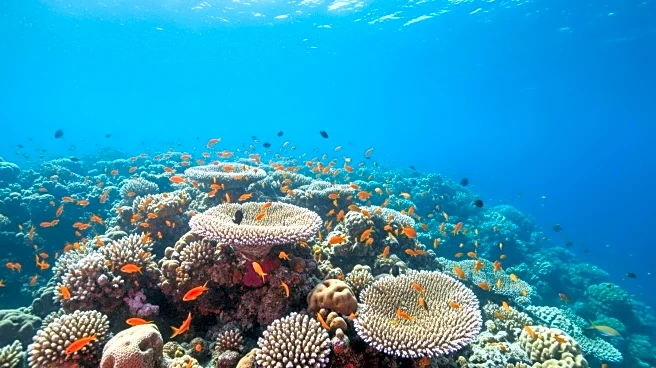What is the story about?
What's Happening?
Researchers have initiated a coral 'baby boom' to restore the reef system off Florida's coast, which has suffered degradation due to record ocean warming. The project involves cultivating and transplanting young corals to fortify the reefs, enhancing their resilience against environmental stressors. This effort is part of broader conservation initiatives to protect marine biodiversity and support ecosystem recovery. The coral restoration aims to mitigate the impacts of climate change and human activities on the reefs, ensuring their long-term survival and ecological function.
Why It's Important?
Coral reefs are vital to marine ecosystems, providing habitat for diverse species and supporting fisheries and tourism industries. The restoration project addresses the urgent need to combat coral decline, which threatens biodiversity and economic activities reliant on healthy reefs. Successful restoration can enhance coastal protection, reduce erosion, and improve water quality. The initiative also serves as a model for global coral conservation efforts, highlighting the importance of proactive measures in preserving marine environments.
What's Next?
Continued monitoring and research will assess the success of the coral 'baby boom' and its impact on reef health. Researchers may explore additional techniques to enhance coral resilience and adaptability to changing conditions. Collaboration with local communities and stakeholders will be crucial in sustaining conservation efforts and promoting awareness. The project could influence policy decisions on marine protection and climate change mitigation, encouraging investment in similar initiatives worldwide.

















